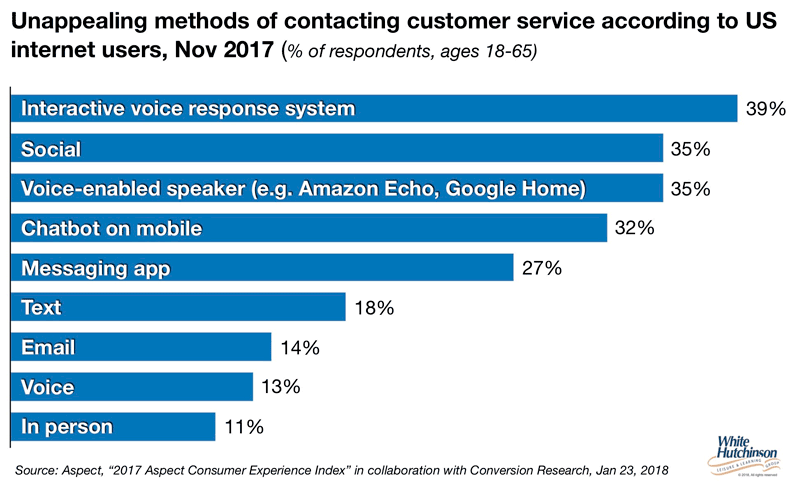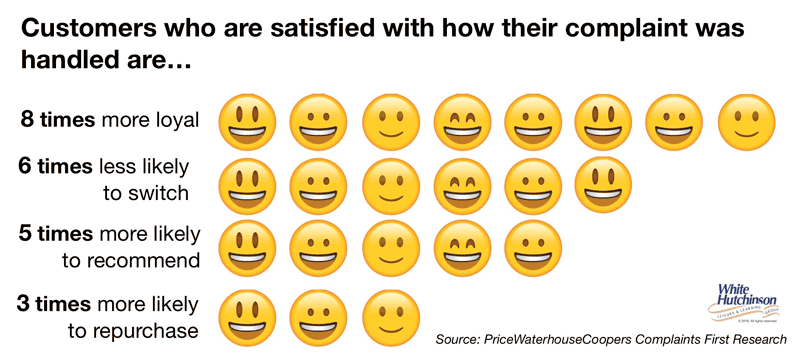
Vol. XVIII, No. 2, February-March 2018
- Randy's travelogue - journey to Milan, Italy & FICO Eataly World
- When something goes wrong, apologize, apologize, apologize to the customer: WRONG!
- Doc Brundy's sodacad under construction
- Changes to the leisure time landscape and its impact on out-of-home entertainment and arts
- Restaurant campers
- It's a beautiful Saturday
- iGen and Clean Lifers partying, drinking & hanging out less
- The six laws of customer experience
- Fighting for out-of-home entertainment participation & spending
- Clean restrooms means more revenues and profit
- Short introduction to Urban Neuroscience
- The future ain't what it used to be
When something goes wrong, apologize, apologize, apologize to the customer: WRONG!
We've all been taught that the 1st rule of customer service when something goes wrong is to apologize. Typically the apologies will continue as an employee goes the extra mile to convey empathy and concern. Like so much conventional wisdom that is eventually proven wrong, new research in the Journal of Marketing Research shows that when the apology extends beyond the first few seconds of the interaction, it can backfire and actually reduce customer satisfaction. Instead, the employee should focus on demonstrating how creatively and energetically they are trying to solve the customer's problem. It's that, not warmth or empathy, that drives customer satisfaction. Surprisingly, the research found the customers cared less about the actual outcome than about the process the employee used to try to offer assistance. Jagdip Singh, one of the researchers said, “It's not about the solution - it's about how you get there.”
The researchers concluded that after the opening seconds of the encounter with a customer with a problem, employees should immediately focus on energetically and creatively exploring potential solutions to the problem. Customers care less about an apology and more about how quickly and effectively the employee presents options and solutions. The researchers say this brainstorming phase is what customers use to assess the encounter and the more ingenuity the employee shows, the better. The customer's satisfaction depends less on the actual solution than on the effort and creativity of finding it.
Bob Easton, a managing director at Accenture, recommends avoiding using the words apologize or sorry. Instead he recommends something like, “I acknowledge the problem, but you probably want us to move quickly into finding options to solve it, so let's start discussing possible options.”
What this research means is that the personality of frontline workers who deal with customer problems matters much less than their problem solving abilities.
A January survey this year by Aspect Software of U.S. internet users who have contacted customer service for any reason found that technology-based forms of contact are the least appealing, with interactive voice response systems being the most disliked. Nearly 4 in 10 respondents said they would “rather clean a toilet” than pursue that approach. The survey found that 61% respondents age 18 to 34 stopped doing business with a company in 2017 due to poor customer service. That was an increase from 53% in 2016.

Echoing these findings, a survey of internet users by the CMO Council in Q4 2016 found that nearly half (47%) said they would stop doing business with a brand that frustrates them, which of course includes poor customer service encounters.
A quick response to complaints or problems is also critical. One study of Americans seeking customer service online via social media found that is it important to respond to every customer issue and even more important to respond quickly. Responding in five minutes or less results in customers wiling to pay more to that company in the future for their services than responding in one hour or more. In the case of airlines, the quickest response results in the customer willing to pay a premium eight times greater. The results held even if the customer's complaint was unresolved. This is consistent with psychological research showing that we dislike the uncertainty of making a request to someone and not hearing back.
Positive customer service recoveries are becoming more and more important every day. When done right, research shows that customers whose complaints are handled can actually become loyal brand advocates, more than ones who didn't have a problem.

Vol. XVIII, No. 2, February-March 2018
- Randy's travelogue - journey to Milan, Italy & FICO Eataly World
- When something goes wrong, apologize, apologize, apologize to the customer: WRONG!
- Doc Brundy's sodacad under construction
- Changes to the leisure time landscape and its impact on out-of-home entertainment and arts
- Restaurant campers
- It's a beautiful Saturday
- iGen and Clean Lifers partying, drinking & hanging out less
- The six laws of customer experience
- Fighting for out-of-home entertainment participation & spending
- Clean restrooms means more revenues and profit
- Short introduction to Urban Neuroscience
- The future ain't what it used to be


